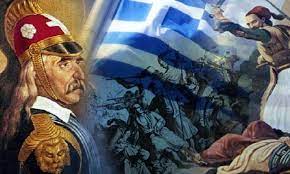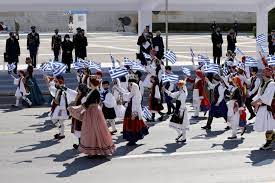Celebrating Greece’s Independence Day: A Journey of Freedom and Unity

Athens: Greece’s Independence Day, observed on March 25th, marks a significant milestone in the nation’s history. This annual celebration commemorates Greece’s liberation from Ottoman rule in 1821, symbolizing the enduring spirit of freedom and resilience.
For nearly four centuries, Greece languished under Ottoman oppression, facing cultural suppression and political subjugation. The Greek War of Independence, ignited on March 25, 1821, was a watershed moment driven by Enlightenment ideals and the quest for self-governance. Visionary leaders such as Theodoros Kolokotronis and Laskarina Bouboulina rallied Greeks from all walks of life to rise up against tyranny and reclaim their sovereignty.

Significance of March 25th: March 25th holds dual significance as both a religious and national holiday. It coincides with the Feast of the Annunciation, symbolizing divine intervention and the dawn of a new era for Greece. The convergence of faith and patriotism underscores the deep-rooted connection between spirituality and the struggle for freedom.
Celebrations and Traditions: Parades and Festivities: Vibrant parades featuring schoolchildren, military units, and civic organizations take place in cities and towns nationwide. Colorful costumes, traditional music, and spirited dances animate the streets, fostering a sense of national pride.

Religious Observances: Churches hold special services, including the “Doxology” and prayers of gratitude, commemorating Greece’s liberation and expressing thanksgiving for blessings received.
Flag Hoisting Ceremonies: The raising of the Greek flag symbolizes unity and solidarity among citizens. Ceremonies often include speeches honoring the nation’s heroes and the sacrifices made for independence.

–Cultural Events: Museums and cultural institutions host exhibitions, lectures, and performances spotlighting Greece’s rich history and cultural heritage. These events promote awareness and appreciation of the nation’s contributions to civilization.
Family Gatherings: Families come together to share traditional Greek dishes and celebrate their shared heritage. From savory moussaka to sweet baklava, these feasts foster bonds of kinship and camaraderie.
Modern Significance: Greece’s Independence Day holds contemporary relevance as a beacon of hope and inspiration. It serves as a reminder of the importance of safeguarding democratic values, human rights, and national sovereignty. The celebration fosters a sense of national identity and solidarity, transcending political differences and uniting Greeks worldwide in a shared commitment to freedom and democracy. As Greece looks to the future, Independence Day serves as a catalyst for progress and renewal, inspiring citizens to uphold the ideals of liberty, equality, and justice.
Greece’s Independence Day is more than just a historical event; it is a testament to the indomitable spirit of the Greek people. As we commemorate this auspicious occasion, let us honor the sacrifices of our ancestors and reaffirm our dedication to freedom, unity, and progress. Together, we celebrate not only the triumphs of the past but also the promise of a brighter tomorrow for Greece and its people.





